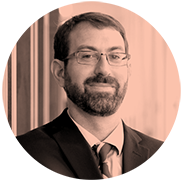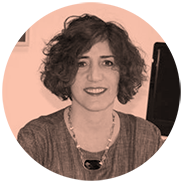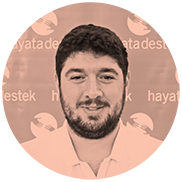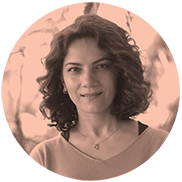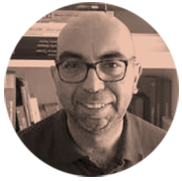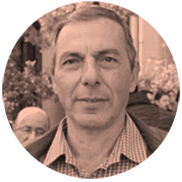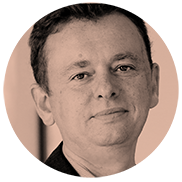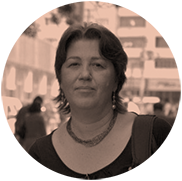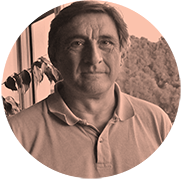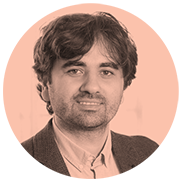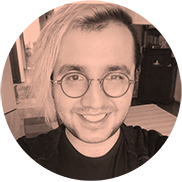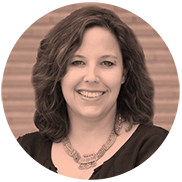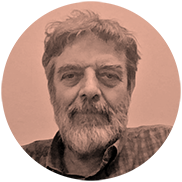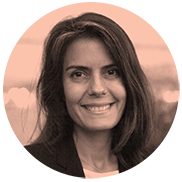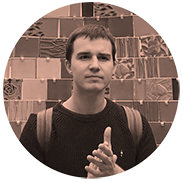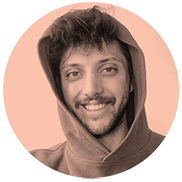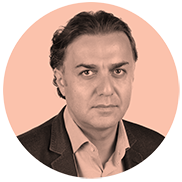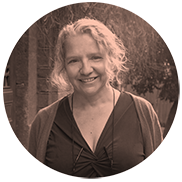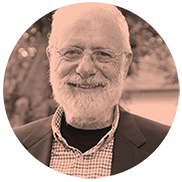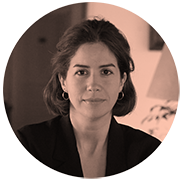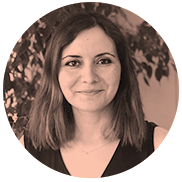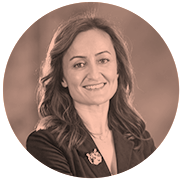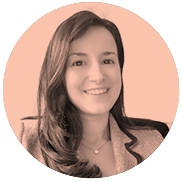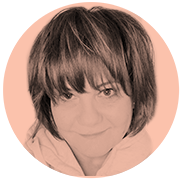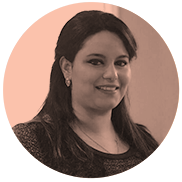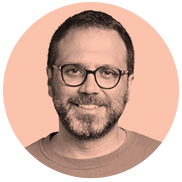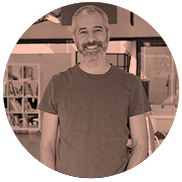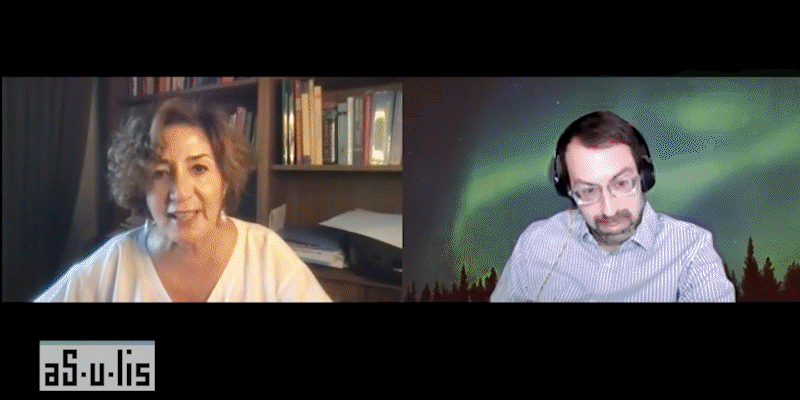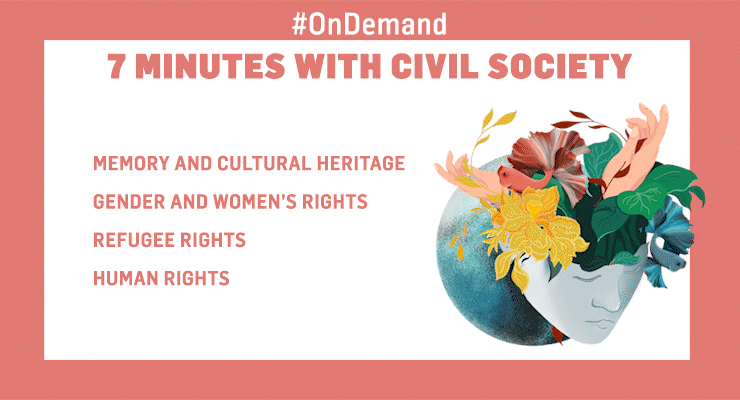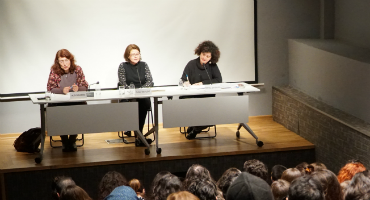Over 530 listeners attended the online panel series where we discussed basic approaches in civil society; its boundaries and responsibilities; its organisation around different identities; the changing faces of the civil field; the perception of civil society in Turkey; philanthropy; and the internal dynamics of civil society organisations with the participation of civil society professionals, academics, experts, and human rights activists from Turkey and abroad.
You can watch the videos of the panel series which convened speakers working in the field of human rights by pressing the “play” button.
18.00-19.00
(UTC+3)
Nilgün Arısan Eralp - The Economic Policy Research Foundation of Turkey
The opening speech of the online panel series titled "Civil Society Sharing Screen" was given by Prof.Dr. Samuel Moyn from Yale University. Nilgün Arısan Eralp, Director of the TEPAV EU Institute, was the moderator of the panel, whose scopes were human rights and its future.
Prof. Dr. Samuel Moyn started his speech with the story of Czech human rights activist Zdena Tominová. She was subjected to violence and exiled because of her advocacy activities in the field of human rights within her country. In a speech that she gave to activists from West, Tominová stated that socialism was used to compromise human rights. However, activist Zdena Tominová declared that she loves socialism anyway because it eliminates the existing financial privileges. Following this story, Moyn indicated that, as a historian, he explicitly examines the relationship between social rights and human rights. Explaining that the 19th century was an age of inequality both nationally and globally, Moyn added that the concept of a welfare state emerged with the victory of nationalism after the Second World War. The welfare state carried out a social and economic rights policy. Moyn continued his speech by explaining that the civil society consisted of trade unions and socialist parties in that specific period. For Moyn, there was no human rights movement in the sense it is understood today. He said that human rights movements have become more prominent in the neoliberal period. According to him, the relationship between values adopted as activism and neoliberal policies should be examined well in order to realize the correlation. He emphasized that today, the human rights movement focuses more on the inequalities of status and fundamental rights. Moyn pointed out that social and economic rights are about to be forgotten day by day.
Lastly, the guest stated that the concept of human rights has been in a crisis since its birth and added that today's dilemmas are mostly related to neoliberalism. Samuel Moyn concluded his speech by emphasizing the importance of combining more egalitarian ideas with debates on the human rights field.
18.00-20.00
(UTC+3)
Elmas Arus - Zero Discrimination Association
Hakan Ataman - Moderator
Three main points were discussed in the panel, which is moderated by Hakan Ataman and held with the participation of Mahmut Can İsal and Elmas Arus. As a beginning, the concepts of rights-based and service-based advocacy were explained. These are the basic concepts of civil society’s history in the world and Turkey. Then, it was discussed whether a new perception concerning civil society could be composed of these two concepts. At this point, the participants talked about the possibilities and limits of civil society. In the second part of the panel, differences in policy-making processes and operations of non-governmental organizations that carry out both rights-based advocacy and service-based activities were put forward. At the end of the discussion, the participants evaluated the pandemic crisis and its effect on fragile groups.
Elmas Arus started her speech by explaining that during the COVID-19 outbreak, the economic and social problems experienced by the fragile groups deepened even more. She emphasized that service-based advocacy gains more importance as disadvantaged groups cannot even meet even their minimum needs during the pandemic. According to the experience she gained over the years, service-based advocacy can only produce an effective result when combined with a rights-based perspective. The guest indicated that advocacy activities would provide higher practical benefits when carried out in line with the needs of fragile groups. She also underlined that the active role of disadvantaged people in the processes would also positively affect participation.
Mahmut Can İsal started his speech by explaining that they work with both rights and service-based advocacy approaches in their activities. İsal stated that “Support to Life Foundation” uses the concept of “disaster” for two different situations. He indicated that human-caused wars are also classified as a disaster. Their starting point in such cases is the advocacy of fundamental rights. İsal talked about the difficulties that Support to Life Foundation faces during their activities and listed those handicaps as lack of fixed budget or accessing official data about the refugees. He also mentioned that they adopt a need-oriented approach in the process of creating policies.
Guests ended their speech by emphasizing that working with local governments and public cooperations in order to carry out activities in the pandemic period would produce more effective results. Lastly, Elmas Arus and Mahmut Can İsal underlined the importance of unity between right and service-based advocacy.
18.00-20.00
(UTC+3)
Goran Miletić - Civil Rights Defenders
Feray Salman - Human Rights Joint Platform
Ahmet İnsel - Moderator
When we look at the development of civil society, we see that it went through different stages in different parts of the world. It came to life in Europe with urbanization and the emergence of the concept of citizenship, and in Latin America or Eastern Europe with the struggle for democracy against authoritarian regimes. The civil society movement in Turkey went through a process emerging after the 1980s and expanding its activities especially starting from the 1990s. We can talk about a process of organizing, which initially started based on the relations of production, evolving into a process based on identity and culture. The differences in political-cultural identities and lifestyles in Turkey also manifest themselves in civil society. At times, civil society organizations are caught between social problems and political actors. On the other hand, some actors see civil society as part of politics and carry out their activities accordingly. This dual situation inevitably narrows down the maneuvering areas of civil society organizations when it comes to their relations with other civil society organizations, the beneficiaries, and the public. In this session, the boundaries of civil society organizations operating in Turkey and around the world and the institutional and structural flexibility of and the interaction between these boundaries have been discussed.
18.00-20.00
(UTC+3)
Yıldız Tar - KaosGL
Işık Tüzün - Education Reform Initiative
Ferhat Kentel - Academician
Ayşe Köse Badur - Moderator
The tendency of redistribution of resources based on discussions about social class, distribution of welfare and poverty, and the tendency based on identity and recognition are two forms of struggle that stand out in civil society. The fact that a significant portion of the systematic inequalities in society are identity-based plays a role in shaping the civic space. It is quite common in civil society to volunteer, advocate, make donations and organize around certain identities. Most civic acts such as these can be considered identity-based, whether focused on ethnic minorities, people with disabilities, or gender. Identity can provide a common sense of belonging and affinity with others. Especially discrimination against a particular group can lead to rallying around a feeling of injustice. Civil society actors should think together to discover what aspects of civil society are needed to nurture an inclusive future for civil society. In this panel we have discussed if civil society organizations who fight against rights violations in society, especially based on core issues such as access to education and health, and unemployment, operating on an axis of social benefit, can going beyond identities. We have talked about what can be done to make the civic space stronger by creating a space for discussing not only the power and impact of identity-based civic activities but also the risks they may contain.
18.30-20.30
(UTC+3)
Leonid Drabkin - OVD-Info
Furkan Dabanıyastı - Boğaziçi University Alumni
Philip Gamaghelyan - Academician
Ali Bayramoğlu - Moderator
Online panel Rebuilding the Civic Space: Changing Faces was held with the participation of activist Bertha Tobias, Leonid Drabkin from OVD-info, academic Philip Gamaghelyan and Boğaziçi University graduate Furkan Dabanıyastı. The moderator of the panel was Ali Bayramoğlu.
The panelists started their speech by explaining the protest processes of the social movements that they involve within their countries. Bertha Tobias stated that the "Shut It All Down" protests in Namibia started with the decline of youth's trust in official institutions. She underlined that the elements of this social opposition are generally made up of people who are not part of the decision-making mechanisms, who are marginalized, and the ones who do not fit into traditional stereotypes. Leonid Drabkin remarked that the protests in his country started with a social media post. He indicated that an essential factor in the growth and credibility of OVD-info is their commitment to its principles. He stated that the regular donations they receive from a total of 20,000 people in Russia are a social feedback. He emphasized that their aim is advocacy for political prisoners. Furban Dabanıyastı stated the most important features of the grassroots movements as being very mobile, reactionary and easy to organize. Lastly, Philip Gamaghelian stated that it is much possible for non-violent social movements to achieve success.
In the second part of the event, the guests focused on the future of civil society. Bertha Tobias stated that for sustainable activism, activities should not be confined to specific patterns and reduced to institutions. Leonid Drabkin highlighted that the problems caused by the state became more visible as a result of the efforts of people who work in the field of civil society. In this part of the discussion, Furkan Dabanıyastı emphasized the importance of combining non-governmental organizations with social opposition movements. The guest drew attention to the use of civil society's tools in order to internalize the concept of stakeholdership in social movements. Philip Gamaghelian mentioned that civil society has an important place in the institutionalization of social struggles. However, he noted that civil society also has pacifying effects for ongoing activism. According to Gamaghelian, as liberal democracy loses its popularity in the world, the demand for civil society will decrease. In addition, he explained that there would be a differentiation in traditional methods due to the developing social media channels. The panel ended after the presentations and answers of the guests.
18.30-20.30
(UTC+3)
İbrahim Betil - Civil society volunteer
Zeynep Meydanoğlu - Ashoka Turkey
Bekir Ağırdır - Moderator
‘Civil society through the eyes of society: Perceptions, approaches and transformations' was organized with the participation of Hacer Foggo from Deep Poverty Solidarity Network, Zeynep Meydanoğlu from Ashoka Turkey, and civil society volunteer İbrahim Betil. Bekir Ağırdır was the moderator of the panel where the perceptions of civil society in society were discussed.
The guests began their presentations by addressing general judgments about civil society. Hacer Foggo, based on the gentrification experience of Sulukule, explained the civil society perception of people who live there. Stating that advocacy activities in civil society refers to a collective position which much more different than being a "benefactor". Foggo indicated that the position against the dominant ones is also an important point of distinction. Zeynep Meydanoğlu started her speech by highlighting that civil society is a very inclusive field. She stated that the world of hate, is major important obstacles to the permanence of civil society activities. İbrahim Betil, gave the membership ratios of civil society organizations. According to his data, in the West, it is very common to participate in CSOs compared to Turkey. Betil cited the state's interventions in the civil area as one of the biggest reasons for the related data difference. Acoording to him these interventions damaged pluralist and democratic values, so that people's trust in institutions decreased during the process.
In the second part where the participation of young people in civil society organizations was discussed, the guests expressed their approaches on the related subject. Hacer Foggo emphasized that the structures that exclude the existence and labor of young people can not be permanent in this period. Also, she mentioned the efforts of young people who work in the field of civil society. According to İbrahim Betil the ideas of young people are rendered invisible and their representation is prevented due to culture and the established general behavior patterns. Zeynep Meydanoğlu explained that the hierarchy that exists in civil society organizations reduces the willingness of young people to take part in these structures. In addition, she underlined that young people are quite participatory in the conditions of proper leadership and horizontal relationship styles.
In the third part, when the transformations in the field of civil society were discussed, the guests conveyed the changes through their experiences. According to Foggo, advancing technology makes right violations more visible than before. Similarly, Betil mentioned the positive sides of technology and emphasized the increase in productivity and access to resources. Meydanoğlu stated that technology adds strength to the power of communication. For her, purpose-oriented mobilizations were grown with the perception of a new generation civil society. In the last part of the panel, the participants presented on the communication styles that are common in civil society and their suggestions for improvement.
18.30-20.30
(UTC+3)
Özen Pulat - Sabancı Foundation
Rana Kotan - Third Sector Foundation of Turkey
Sevda Kılıçalp - Moderator
The panel titled "Sustainable Civil Society: Resource Distribution, Philanthropy and Donor Behaviors" was moderated by Sevda Kılıçalp, Director of Policy and Incubation at the European Foundations Center, with the participation of TÜSEV Secretary General Rana Kotan, Sabancı Foundation Programs Manager Özen Pulat and WINGS Director Benjamin Bellegy.
In the first part of the panel, the forms of support given to civil society organizations and changes in this field were discussed. Rana Kotan mentioned that the public's approach of supporting civil society lacks a basis of stakeholdership. Kotan stated that grants have a substantial power and participatory grant models are important in a context where the agenda can change depending on the areas where resources are transferred, and they underlined that mobilizing local funds is of great importance for sustainability. Özen Pulat noted that the concentration of international funds in certain areas, leads to a loss of balance; as a result, initiatives on other subjects have limited access to resources. They stated that today, support for civil society needs to be carried out with a companionship approach, which passes beyond the transfer of resources. Benjamin Bellegy said that for sustainability, it is also important that civil society organizations learn to use the resources they already have.
In the second part, which focused on individual donorship tendencies, Özen Pulat stated that visibility increased during the pandemic period, thus providing a stir in individual volunteering. Benjamin Bellegy pointed to the benefits such as people being able to act faster thanks to technology, while also pointing to simultaneous problems. They said the focus of donations on issues that resonated more widely on social media, led to neglect of projects with less visibility. Rana Kotan stressed that while there are gains in increasing individual donations during the pandemic and disasters, it is also important that they be kept regular and sustained rather than being one-time aids. They mentioned that donor practices in Turkey tend to provide direct support, rather than going through a civil society organization. Kotan underlined that in order to increase support, civil society organizations need to focus on explaining their mission and highlighting the gains, rather than a communication oriented towards calls for donations. The panel continued with the discussion of the effects and contributions of corporate companies to the field of civil society. Benjamin Bellegy noted that on a global scale, private companies continue to have an increasing presence in the field of philanthropy. However, they stressed that productivity-enhancing business approaches do not have the same effect when it comes to social change, and that more bridges need to be established between civil society actors and companies. Rana Kotan mentioned that the shift of employees to companies that want to contribute to society also accelerated the process and said that it was possible to see the signs of a transformation towards stakeholder capitalism. Özen Pulat emphasized the importance of bringing the hierarchical relationship between companies and non-governmental organizations to a stakeholdership basis. They underlined that both sides need to understand each other and show flexibility in order to act with a collaborative approach.
In the last section discussing the effects of digital transformation on civil society, participants tackled the positive impact of technology on facilitating donations, as well as some risks that arise in parallel with these developments. Rana Kotan said that unless the legislation changes, the accelerating effect of the technology cannot reach its full potential. On the other hand, they underlined that the current discussions about technology-based surveillance, artificial intelligence and data collection are of close interest to civil society and mentioned the need for new policies to protect democracy in the digital world. Benjamin Bellegy emphasised that it should be questioned what the digital world means to civil society and said that a future in which civil space is privatized carries significant risks. Özen Pulat noted the inequalities in integration into the digital transformation process. They stated that in addition to reasons such as corporate infrastructure differences and financial shortages, there is a serious accessibility problem for the people with disabilities in the digital world.
18.30-20.30
(UTC+3)
Mouna Ben Garga - CIVICUS
Uygar Özesmi - Change.org
Yörük Kurtaran - Moderator
The panel titled "Civil Society 2.0: Dynamics of Change", moderated by Yörük Kurtaran, was held with the participation of Dilek Ertükel (Sivil Düşün), Mouna Ben Garga (CIVICUS) and Uygar Özesmi (change.org).
In the first part of the panel, recent notable changes in the field of civil society were discussed. Uygar Özesmi mentioned the facilitating effect of technology on civil society activities and emphasized that the trade volume of social enterprises increased greatly during the pandemic period. On the other hand, they underlined that developing and expanding surveillance and profiling technologies are starting to create problems for non-governmental organizations. Mouna Ben Garga said restrictions on civil rights such as peaceful demonstration and freedom of assembly, and freedom of press were on the rise, adding that the shrinking of the civilian sphere had become a global problem. They noted that human rights have been made out to be a marginal agenda by governments, and highlighted the damaging impact of menaces such as disinformation in the digital sphere, on the reputation of civil society. Dilek Ertükel mentioned the proliferation of new, rights-based organizations in Turkey and the increase of initiatives related to workers' rights during the pandemic.
In the second part, where the internal functioning of civil society organizations was discussed, Yörük Kurtaran emphasized the increased visibility of young people in civil society organizations with technology becoming essential, and that the traditional gerontocratic structures are beginning to change. Uygar Özesmi stated that the issues of diversity and inclusion have gained importance. They noted that the toxic work ethic is also beginning to change, and that the well-being of the employees is now becoming more substantial. Mauna Ben Garga pointed out that while youth participation is still deficient in traditional structures; the main capacity to connect and interact with participants is now held by young people. On the other hand, they stressed that weaknesses in accountability undermine endeavors by making civil society formations easy to attack, and that this issue should be given attention. Dilek Ertükel stated that the importance of institutionalization is understood by everyone, but that different models need to be developed and spread. Ertükel stated that the new generation sees itself not as victims, but as individuals with rights and responsibility, adding that this effect is challenging elder leaders to change as well.
In the last part of the panel, Yörük Kurtaran expressed the importance of organizing. Dilek Ertükel stated that civil society studies still seem marginal and that there are shortcomings in making participation sustainable. They underlined the importance of greater connectivity and cooperation on issues of interest to everyone, such as climate change. Mouna Ben Garga emphasized that civil society has become more open to working with the private sector and social enterprises, but that civil society's rights-based and citizen-centered perspective should be preserved when forming these alliances. Uygar Özesmi said that sensitivity on ethical behavior has also increased among white-collar workers, which is another factor that promotes the cooperation of companies and civil society organizations.

This project is funded by the European Union.


Simultaneous interpretation of this activity into Armenian is provided within the framework of the
“Support to the Armenia-Turkey Normalisation Process: Stage 3” funded by the European Union.
